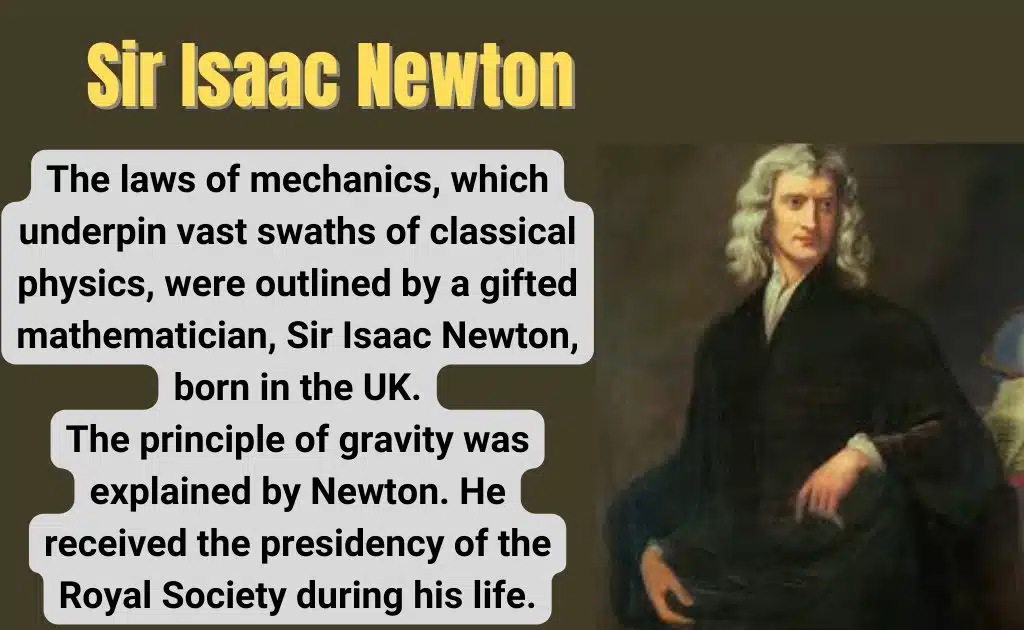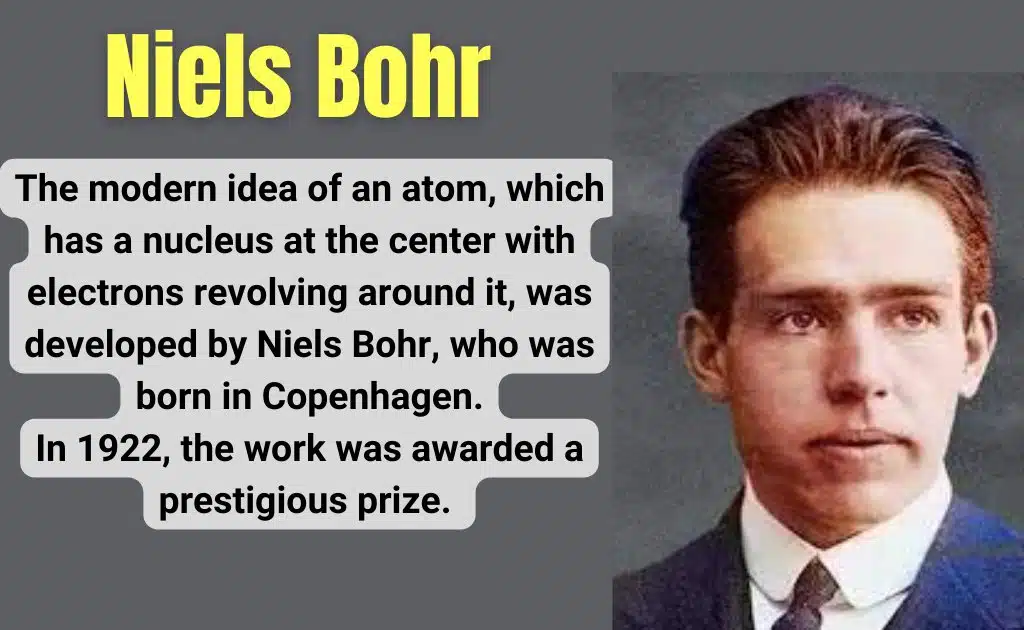Famous Physicists-Introduction and Biography
A physicist is a person who studies matter and energy. The laws of space, energy, time, and matter are being explored. The basic laws of nature are studied by some scientists while others are experts in designing the devices and instruments that are essential in many industries. Scientists publish their ideas, new theories, and research results in journals, as well as write patents, and teach and develop modern software and techniques.
Isaac Newton
The laws of mechanics, which underpin vast swaths of classical physics, were outlined by a gifted mathematician, Sir Isaac Newton, born in the UK. The principle of gravity was explained by Newton. He received the presidency of the Royal Society during his life.

He is renowned as a supreme rationalist, though he wrote more about religion, such as a 300,000-word treatise that tried to prove the pope was Antichrist and an apocalyptic whore.
Niels Bohr
The modern idea of an atom, which has a nucleus at the center with electrons revolving around it, was developed by Niels Bohr, who was born in Copenhagen. When electrons move from one energy level to another, the quanta of energy is Emission.

In 1922, the work was awarded a prestigious prize. For his achievements, the Carlsberg brewery gave a special gift: a house with a connection to its brewery next door and free beer for the rest of your life. The European particle physics facility, called Cern, was established in 1954. Aage was the winner of the prize for his research on atomic nuclei.
Galileo Galilei
After being born in Pisa, Galileo was trained to become a doctor. After hearing of the invention of the telescope in 1609, he built his own and turned it to the heavens to reveal the existence of sun spots and a mountainous surface on the moon: the heavens were not incorruptible. Galileo had to abandon his support for the catholic church in 1633 because of this.
The groundwork for the later theories was laid by the work that he did on falling bodies.
Albert Einstein
The theories of relativity, quantum mechanics, and gravitation are what define our physical knowledge of the universe. Albert Einstein, the physicist with the greatest reputation for the originality of thought, was born in Germany and died in 1955.
Time and space are not static and can change, as shown by his work. Einstein, who became a US citizen in 1940, provided the world’s most famous equation, E=mc2, which demonstrates the equivalency of mass and energy. He has died as a celebrity and his name has become synonymous with genius. In 1921 he was the winner of the physics prize.
James Clerk Maxwell
Compared to Einstein and Newton, the general public does not know much about Edinburgh-born Maxwell. His discovery of the theory of electromagnetism was one of the most significant contributions to physics. Electricity, magnetism, and light are all manifestations of the same phenomenon called the electromagnetic field.
There were direct consequences of the development of radio, TV, and radar. Some of the first work that was done in the field of color vision was done by Maxwell. However, in his later years, his God-fearing Scottish upbringing brought him into a dispute with the evolutionary thinking of Darwin and others and he wrote papers against natural selection.
Michael Faraday
He became one of the greatest scientists of his time, thanks to the patronage of the English chemist Humphry Davy, who hired him as an assistant in 1813. The laws of electrolysis were discovered by Faraday and he established the idea of the Electromagnetic field.
The foundations of electric motor technology were created by his electrical devices. When asked to advise on chemical weapons for the war effort, he refused on ethical grounds, as he twice turned down offers of a knighthood. The side of Einstein’s study wall has a picture of Faraday on it.



Leave a Reply